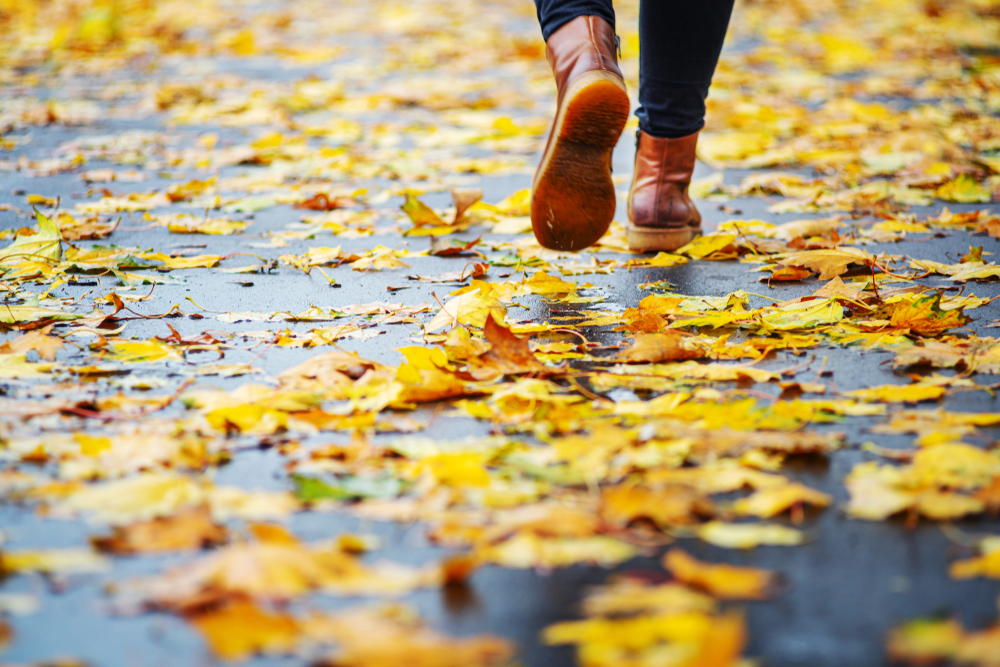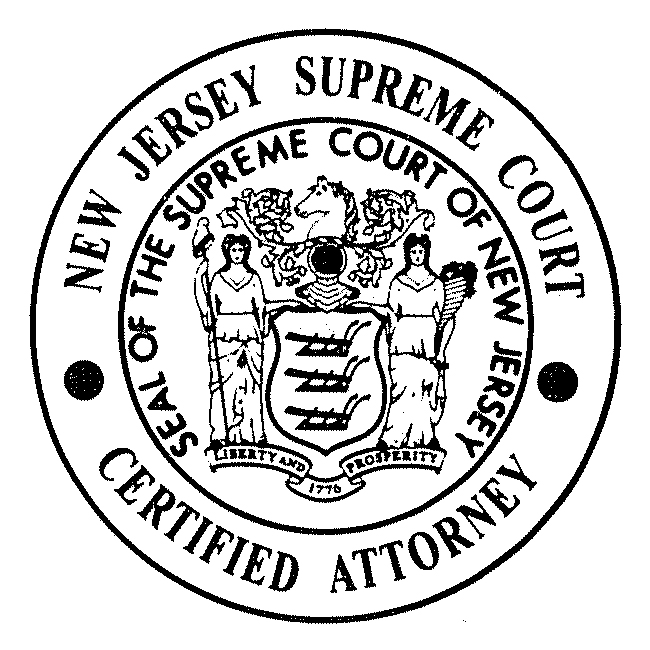New jersey’s hidden autumn dangers: common fall injuries and how to protect your rights

Autumn in New Jersey brings cooler weather, outdoor activities, and vibrant fall scenery, but it also presents hidden dangers. Whether you’re out for a walk in the crisp air or enjoying a hayride at a local farm, the risks of injury increase during this season.
Here, we’ll explore common autumn-related personal injuries and explain how you can protect your rights if you’ve been injured due to someone else’s negligence.
Common Types of Autumn Injuries
While not an exhaustive list, these are the most common types of injuries sustained during the fall season:
Slips and Falls on Wet Leaves
One of the most frequent causes of injury in the fall is slipping on wet leaves. As leaves accumulate on sidewalks, driveways, and parking lots, they can become slippery, especially after rain. Just like ice in the winter, wet leaves reduce traction and increase the likelihood of falls. These accidents can result in sprained ankles, broken bones, or even head injuries.
To avoid these risks, it’s important for homeowners and property managers to regularly clear leaves from walkways. If they neglect this responsibility, injured parties may be able to hold them accountable for unsafe conditions.
Hayride and Outdoor Activity Injuries
Many families flock to farms in the fall to enjoy hayrides, corn mazes, and pumpkin patches. While these activities are a beloved part of the season, they can also present risks. Hayride accidents, for example, can occur when wagons are overcrowded, poorly maintained, or driven by inexperienced operators.
Similarly, uneven or unstable ground in pumpkin patches or at fall festivals can result in injuries like twisted ankles or knee injuries, especially if visitors step into holes or trip over hidden objects. These types of conditions can also lead to back injuries from unexpected falls.
Additionally, sharp objects like exposed rocks or broken farming equipment can cause cuts and lacerations, which may require medical attention and lead to infection if not treated promptly.
Farms and event organizers are responsible for ensuring the safety of their guests. If an injury occurs due to unsafe conditions, the property owner may be held liable.
Injuries from Falling Tree Branches
As temperatures drop and storms become more frequent, the risk of falling tree branches increases. Weak or dead branches are more likely to break under the weight of rain and falling leaves, posing a danger to pedestrians and drivers alike. Injuries from falling branches can range from mild to severe, with head injuries and fractures being the most common.
Property owners are expected to maintain their trees and remove dead or dangerous branches. If they fail to do so and someone is injured, they may be held responsible for the resulting damages.
Fire Pit Burns
Cool autumn evenings are perfect for gathering around a fire pit, but these cozy gatherings can quickly turn dangerous. Fire pits, whether at home or in public spaces, can cause severe burns if they aren’t properly maintained or supervised. Tripping and falling into a fire pit or accidentally coming into contact with the flames can result in serious injury.
It’s essential to exercise caution around fire pits, ensuring that children and pets are supervised and that proper safety measures are in place.
Early Halloween Decoration Injuries
As the excitement for Halloween builds in the weeks leading up to the holiday, early decorations and festivities can introduce various safety risks. Poorly lit walkways, inflatables, and decorative trip hazards can lead to slip-and-fall accidents.
Additionally, heavy decorations or improperly secured items like hanging lights and props may cause injuries if they fall or obstruct pathways. Homeowners and businesses hosting early Halloween events should ensure that decorations are properly secured and that outdoor areas are well-lit and clear of hazards to prevent accidents.
Personal Injury Claims: What You Need to Know
If you’ve been injured in an accident, you may be entitled to compensation through a personal injury claim. Personal injury claims allow individuals who have been harmed by someone else’s negligence to recover damages for their injuries. This compensation can cover medical expenses, lost wages, pain and suffering, and more.
Medical Costs
One of the primary reasons for filing a personal injury claim is to recover medical costs. Injuries like broken bones, head trauma, or burns often require extensive medical treatment, which can lead to overwhelming medical bills. A successful personal injury claim can help you recover the costs of hospital stays, surgeries, physical therapy, and any ongoing care you may need.
Lost Wages
Injuries don’t just affect your health; they can also impact your ability to work. If your injury forces you to take time off from your job, you may be entitled to compensation for lost wages. This can include the income you missed out on while recovering, as well as any future earnings you may lose if your injury results in long-term disability.
Pain and Suffering
Beyond financial losses, personal injuries can take a toll on your quality of life. The physical pain, emotional distress, and impact on your daily activities are all factors that can be considered when seeking compensation for pain and suffering in a personal injury claim.
Property Damage
In cases where your personal property is damaged as a result of an accident, you may be able to recover the costs of repairs or replacements through your personal injury claim. For example, if a falling tree branch damages your car, or if a fire pit accident causes property damage, these losses can be included in your claim.
Steps to Take After an Injury This September
If you’ve been injured in an autumn-related accident, there are a few key steps you should take to protect your rights and strengthen your personal injury claim:
- Seek Medical Attention: Even if you think your injuries are minor, it’s important to get checked out by a medical professional. Some injuries, like concussions or fractures, may not show symptoms right away but can worsen over time.
- Document the Scene: Take photos of the accident scene, including any hazards that contributed to your injury (such as wet leaves or broken branches). This documentation can serve as valuable evidence in your personal injury claim.
- Report the Incident: If your injury occurred on someone else’s property, make sure to report the incident to the property owner or event organizer. This creates a record of the accident, which can help support your claim.
- Contact an Experienced Personal Injury Lawyer: Navigating the legal process of a personal injury claim can be complex, especially when dealing with insurance companies. An experienced personal injury lawyer can guide you through the process, negotiate on your behalf, and ensure that you receive fair compensation.
Why You Need a New Jersey Personal Injury Lawyer
Filing a personal injury claim can be a daunting task, particularly when you’re recovering from an injury. A personal injury lawyer can help by:
- Investigating the Accident: Your lawyer will gather evidence, interview witnesses, and work to establish liability for the accident.
- Handling the Legal Process: Personal injury claims involve paperwork, negotiations, and sometimes litigation. A lawyer will manage all of these aspects for you.
- Negotiating with Insurance Companies: Insurance companies often try to minimize payouts. An experienced lawyer can negotiate with them to ensure you receive the compensation you deserve.
Contact Team Law: Your Trusted Personal Injury Lawyers if You’re Injured This Autumn Season
Autumn brings with it the potential for unexpected injuries, whether you’re out enjoying a hayride, raking leaves, or celebrating the spooky season early. If you’ve been injured in an accident, it’s important to understand your legal rights and how an experienced personal injury lawyer can help you recover compensation for your injuries. By taking the right steps and seeking legal guidance with Team Law, you can protect your rights and get the support you need to move forward.
Call us at 732-896-2560 or fill out our online contact form to schedule a free consultation and learn more about how we can help you recover the compensation you deserve.
 CALL NOW
CALL NOW






